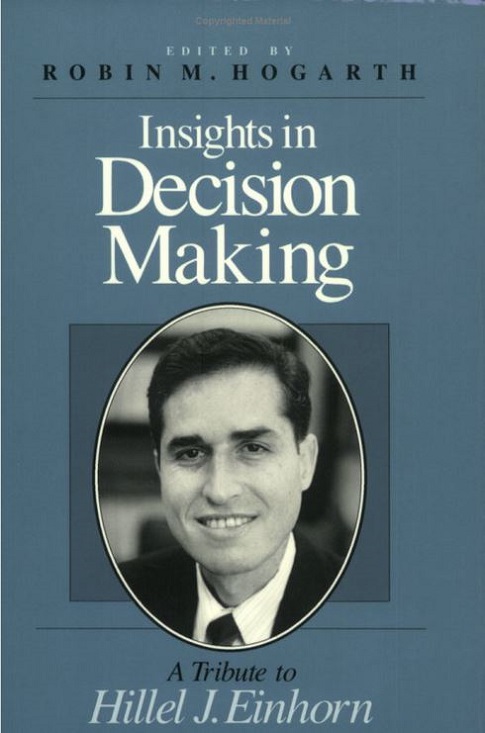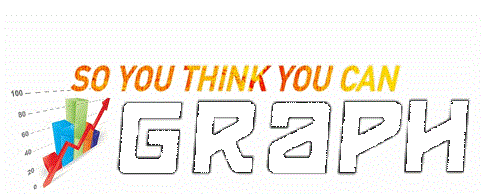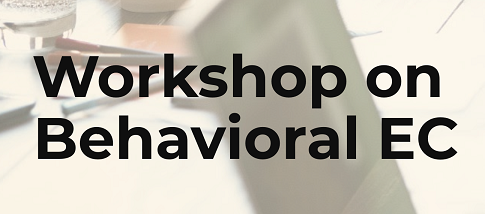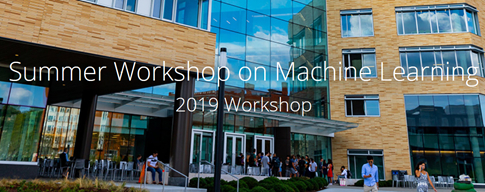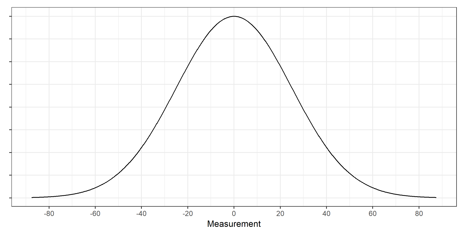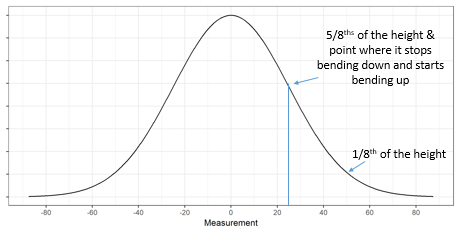SUBMISSION DEADLINE JUNE 3, 2019
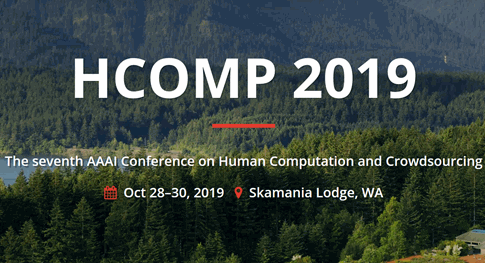
WHAT: HCOMP 2019: The Seventh AAAI Conference on Human Computation and Crowdsourcing
WHEN: Oct 28–30, 2019
WHERE: Skamania Lodge, Stevenson, Washington, USA
SITE:https://www.humancomputation.com
KEY DATES:
-
- June 3, 2019: Abstract submission
- June 5, 2019: Full papers due
- August 2, 2019: Notification of acceptance
- August 22, 2019: Final camera-ready papers due
- October 28–30, 2019: Conference
OVERVIEW
The 7th AAAI Conference on Human Computation and Crowdsourcing (HCOMP 2019) will be held Oct 28–30 at Skamania Lodge in Washington State near the Columbia Gorge River, just 45 minutes from Portland, Oregon. This year is the 10-year anniversary of the very first HCOMP workshop in Paris, and to celebrate, there will be special events, talks, and panels throughout the conference.
HCOMP is the premier venue for disseminating the latest research findings on human computation and crowdsourcing. While artificial intelligence (AI) and human-computer interaction (HCI) represent traditional mainstays of the conference, HCOMP believes strongly in inviting, fostering, and promoting broad, interdisciplinary research. The field is particularly unique in the diversity of disciplines it draws upon and contributes to, ranging from human-centered qualitative studies and HCI design, to computer science and artificial intelligence, to economics and the social sciences, all the way to digital humanities, policy, and ethics. We promote the exchange of advances in human computation and crowdsourcing not only among researchers, but also engineers and practitioners, to encourage dialogue across disciplines and communities of practice. Submissions may present principles, studies, and/or applications of systems that rely on programmatic interaction with individual people or crowds, or where human perception, knowledge, reasoning, or physical activity and coordination contributes to the operation of computational systems, applications, or services.
This year, we especially encourage work that generate new insights into the “human computation” side of HCOMP, such as new understandings about human cognition, human-in-the-loop intelligence systems, human-AI interaction and collaboration, algorithmic and interface techniques for augmenting human abilities to perform tasks, and other issues that affect how humans collaborate with AI systems (such as bias, fairness, and interpretability).
Topics of interest include:
– Crowdsourcing applications and techniques, including but not limited to: citizen science, collective action, collective knowledge, crowdsourcing contests, crowd creativity, crowd funding, crowd ideation, crowd sensing, crowdsourcing in computer vision, crowdsourcing in health, disaster response and relief, fact verification, gaming and gamification, incentives in crowdsourcing, knowledge bases, microtasks, prediction markets, wisdom of crowds
– Techniques that enable and enhance human-in-the-loop systems, making them more efficient, accurate, and human-friendly
– Studies that inform our understanding about the future of work, distributed work, the freelancer economy, and open innovation
– User studies about how people perform tasks individually, in groups, or as a crowd, including those drawing on techniques from human-computer interaction, social computing, computer-supported cooperative work, design, cognitive and behavioral sciences (psychology and sociology), economics, etc.
– Topics at the intersection of HCI and AI, including human-AI interaction, human-AI collaboration, AI interpretability, explainable AI, etc.
– Fairness, accountability, transparency, ethics, and policy implications for crowdsourcing and human computation
CALL FOR FULL PAPERS
Authors are invited to submit papers of up to 8 pages, plus any number of additional pages containing references only. Please see “Publication” below for number of allowed pages in the final proceedings.
All submitted papers must represent original work, not previously published or under simultaneous peer-review for any other peer-reviewed, archival conference or journal.
Papers must be formatted in AAAI two-column, camera-ready style; please refer to the AAAI 2019 Author Kit (http://www.aaai.org/Publications/Templates/AuthorKit19.zip) for details. Papers must be in trouble-free, high-resolution PDF format, formatted for US Letter (8.5″ x 11″) paper, using Type 1 or TrueType fonts. The AAAI copyright block is not required on submissions, but must be included on final accepted versions.
Electronic abstract and paper submission through the HCOMP-19 EasyChair paper submission site (available March 29, 2019) is required on or before the deadlines listed above. We cannot accept submissions by e-mail or fax. Authors will receive confirmation of receipt of their abstracts or papers, including an ID number, shortly after submission. HCOMP will contact authors again only if problems are encountered with papers. Inquiries regarding paper receipt must be made no later than June 12, 2019.
All papers must be anonymized (include no information identifying the authors or their institutions) for double-blind peer-review.
Authors are invited, but not required, to include supplemental materials such as executables and data files so that reviewers can reproduce results in the paper, images, additional videos, related papers, more detailed explanations, derivations, or results. These materials will be viewed only at the discretion of the reviewers, who are only obligated to read your paper itself.
At least one author of each accepted paper must register for the conference to present the work or acceptance will be withdrawn.
PUBLICATION
Accepted full papers will be allocated eight (8) pages in the conference proceedings; up to two (2) additional pages may be used at a cost to the authors of $275 per page. Final papers found to exceed page limits and or otherwise violating the instructions to authors will not be included in the proceedings. Authors will be required to transfer copyright of their paper to AAAI. Accepted full papers will be published in the HCOMP conference proceedings and included in the AAAI Digital Library.
CONFERENCE CO-CHAIRS
Edith Law, University of Waterloo
Jennifer Wortman Vaughan, Microsoft Research
 Subscribe to Decision Science News by Email (one email per week, easy unsubscribe)
Subscribe to Decision Science News by Email (one email per week, easy unsubscribe)
